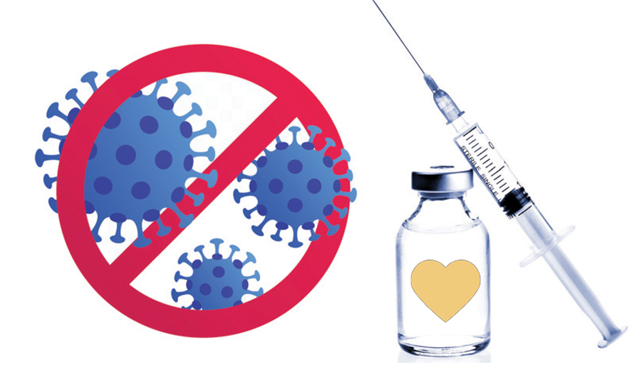From the start of the COVID-19 pandemic, as case numbers multiplied with each passing week, it was apparent there would be only one solution to this global health crisis. The answer fell in the domain of what I believe is the single greatest advancement in modern medicine — vaccination. Over this last year, we all witnessed what our world looked like when a vaccine didn’t exist for this highly contagious illness. Worldwide, there have been nearly 200 million cases of COVID with nearly 4 million lives lost, more than 600,000 of these in the U.S. alone.
I received my first vaccine with other first responders and frontline workers in mid-December 2020. This was a mere nine months after COVID-19 was officially declared a pandemic by the World Health Organization. Was I concerned this vaccine went from concept to my arm too fast? Not at all. The groundwork was already laid out in the early 2000s with the first SARS outbreak, and the technology used in making these new vaccines had been actively researched for decades.
Clinical trials generally take many years because of factors that include funding, participant enrollment and laboratory space. But with hundreds of scientists working around the clock and tens of thousands of trial participants supported by critical emergency funding, we were able to watch something truly incredible transpire. The combination of very large trial participant groups and the requirement that 90 days had to pass to observe for adverse events before emergency use authorization would be granted has made these vaccines among the safest and most tested ever utilized.
At the time of this writing, more than 300 million doses of the COVID vaccine have been administered in the U.S. with exceptionally few adverse reactions. These vaccines do not contain metallic preservatives or stem cells, nor are they capable of altering one’s genetic makeup or DNA. They do not threaten current or future fertility, and they have been endorsed by every major professional medical society and every major practicing religious entity in the United States. These vaccines are safe, effective and have been the most critical tool in our fight against the COVID pandemic.
Certain exceptionally rare complications of vaccination, including reports of blood clotting and cases of heart inflammation, are being appropriately investigated, but they pale in significance to the potential for severe outcomes from COVID infection. Around 15 percent of those infected with COVID, regardless of their underlying health status, could experience a more severe course with prolonged lung damage, risk for stroke and blood clots to the lungs, fatigue, and other neurologic and psychologic complications. Vaccination remains our best preventative tool to dramatically decrease the chances of these severe COVID outcomes.
With this said, vaccine hesitancy remains on the part of many. Now, six months after the first COVID vaccines were administered, we are seeing the durability of robust antibodies; individuals simply are not getting severely ill if fully vaccinated. Mask wearing and social distancing have at last given way to visits with our family members, eating in restaurants and traveling across the country all thanks to such incredible science.
While we have made significant strides, we must continue to encourage all eligible teens and adults who haven’t yet done so to go ahead and get vaccinated. Every new case of COVID is another opportunity for this virus to further mutate and potentially evade the antibodies generated by the vaccines. At present, even the most worrisome variants are covered very well by vaccination, but time is of the essence.
The more we come together as a society to end this pandemic once and for all through continued vaccine efforts, the fewer potential hosts the virus will find, and the normalcy we all crave will be ours at the finish line.
This column is writte by Dr. Mia Taormina. Dr. Taormina is an infectious disease specialist at DuPage Medical Group. She answers questions about the pandemic live most Fridays at 11 a.m. on “Reset” on WBEZ (91.5 FM). For details, click here.
The above appears in the August 2021 issue of the print version of Fra Noi. Our gorgeous, monthly magazine contains a veritable feast of news and views, profiles and features, entertainment and culture. To subscribe, click here.
 Fra Noi Embrace Your Inner Italian
Fra Noi Embrace Your Inner Italian







